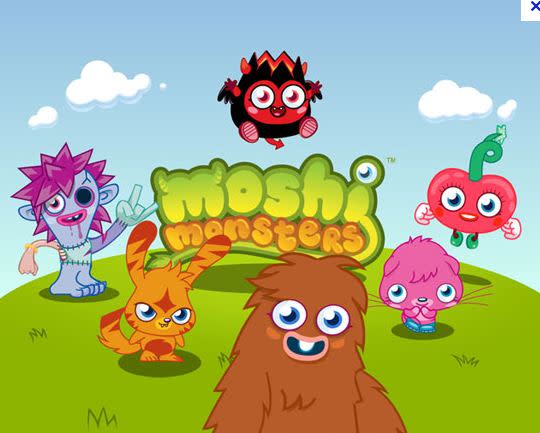Moshi Monsters turn five: How the UK's virtual pets conquered the world
It began with a simple doodle in a London coffee shop - but just five years later virtual pet game Moshi Monsters has more than 80 million fans around the world.

It began with a simple doodle in a London coffee shop - but just five years later virtual pet game Moshi Monsters has more than 80 million fans around the world.
As Moshi Monsters celebrates its fifth birthday, the game has now grossed a quarter of a billion dollars globally in sales of books, trading cards and toys.
The official Moshi Monsters magazine is the number-one-selling monthly kids’ magazine in the UK - and a Moshi Monsters album reached the UK top five.
But its creator Michael Acton Smith admits it wasn't always looking like a success.
He said: "Like most entrepreneurs I am wildly optimistic - but I didn't think it would grow quite as widely as this. The first game we created was a commercial disaster."
"I thought there was something special here but it has been pretty amazing how fast it has happened."
[Related: The iPhone beaters: Samsung, HTC and Sony's "super phones"]

"The idea came when I was sitting in a coffee shop doodling and I drew a little monster," Smith said. "I just thought it would be amazing to bring it to life. I used to have a Tamagotchi and had seen how big Furby had been. That was the little lightbulb moment."
The Moshi Monsters online world has its own currency called Rox. In five years, 47 billion Rox have been spent on everything from Slop (its most popular item) to Garlic Marshmallows and Toad Soda.
There have also been 22 million comments posted on its Daily Growl blog with 750 million board messages sent by users.
Serial entrepreneur Michael had his first big success when he founded the online gadget retailer Firebox.com with business partner Tom Boardman. The pair had an iconic hit with the creation of their Shot Glass Chess Set.
But it wasn't always plain sailing. The failed launch of a global treasure hunt called Perplex City lost Michael's company Mind Candy a fortune.
Smith said: "I learned a lot from Perplex City. The biggest lesson there was keeping things simple. It was super complex and took years to develop, so with Moshi I wanted something that was more accessible, more fun and lighter. That's definitely worked."
Mind Candy and Moshi now employ 200 people at its London HQ, serving 150 countries. Its workforce doubled last year. It is often hailed as a British technology and entertainment success story, something Smith loves - especially as many people first assume it must be Japanese or American.
He said: "I love being a British success story. It is wonderful to show it is possible to build a really successful entertainment company here in London. There is enough talent, enough ambition and I think we should celebrate things like this. Hopefully it can inspire the next generation of amazing entrepreneurs in the UK who can provide the engine of growth for this great country.
At its height in 2009, the online Moshi Monsters game was growing by one new registered user per second and while the UK is still its biggest territory, the brand is huge in the US, Australia, Canada and New Zealand.
He explained: "We have a film coming out later this year but the biggest shift in the kids' world is from desktop computers to touchscreen. It is happening incredibly quickly and we are working as hard as we can to develop amazing stuff on tablets."
"If I could start again, I would have begun developing for mobile sooner. We were caught a little surprised by how fast the switch has happened. I'd have definitely taken that more seriously as soon as the iPhone and iPad came out."
He explained: "There are many kids brands that are fads, which burn brightly and then fade away. On the flip side there are some that stand the test of time like LEGO, Hot Wheels or Barbie.
"We want to build Moshi into an evergreen brand and to do that we must constantly keep it fresh to add new stories, characters and platforms. As long as we don't rest on our laurels we can continue to build a successful brand."

 Yahoo News
Yahoo News 